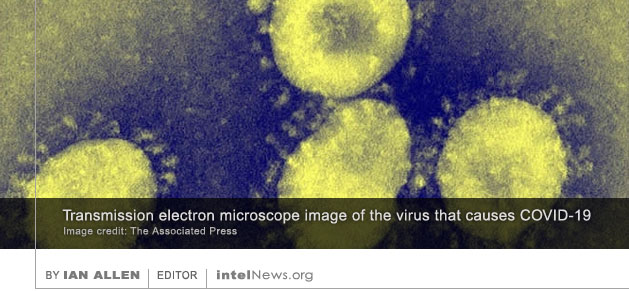U.S. Pentagon ran secret COVID-19 anti-vaccination campaign to undermine China
June 17, 2024 1 Comment
 THE UNITED STATES DEPARTMENT of Defense ran a secret psychological operation on multiple social media platforms, aimed at undermining Chinese-manufactured vaccines against COVID-19. The controversial campaign was met with objections by several U.S. government officials, but continued for over a year, spanning both the Trump and Biden administrations.
THE UNITED STATES DEPARTMENT of Defense ran a secret psychological operation on multiple social media platforms, aimed at undermining Chinese-manufactured vaccines against COVID-19. The controversial campaign was met with objections by several U.S. government officials, but continued for over a year, spanning both the Trump and Biden administrations.
According to the Reuters news agency, which uncovered the alleged plot, the psychological operation initially targeted the Philippines in the spring of 2020. During that time, the Southeast Asian nation relied heavily on the CoronaVac, also known as the Sinovac COVID-19 vaccine, which was manufactured by the Chinese biopharmaceutical firm Sinovac Biotech. The CoronaVac vaccine was approved for human consumption by the World Health Organization.
An investigation by Reuters determined that the U.S. Pentagon attempted to undermine the efficacy of the Chinese-manufactured vaccine, in order to sabotage the relations between China and the Philippines. Over time, the Pentagon project morphed into an anti-vax campaign that questioned the quality of Chinese-produced coronavirus test kits and Chinese-supplied face masks. There was also an attempt to stigmatize Chinese-produced medical supplies relating to COVID-19. The campaign argued that the coronavirus had originated in China, which made Chinese-manufactured medical supplies suspect.
The psychological operation utilized hundreds of fake social media accounts on multiple platforms, which were unified under the hashtag #Chinaangvirus —Tagalog for “China is the virus.” By early 2021, the campaign had expanded to the Middle East and Central Asia. Some social media posts claimed that Muslims should not be using the Sinovac COVID-19 vaccine because it contained pork gelatin and should thus be considered forbidden under Islamic law. These tactics raised objections by some U.S. government officials, notably from the State Department, who expressed them in meetings with Pentagon personnel. The secret campaign was terminated in June of 2021.
The Reuters news agency spoke to Greg Treverton, former chairman of the U.S. National Intelligence Council, which ensures that the work of the nation’s intelligence agencies reflect the government’s policy priorities. Treverton told the news agency that getting “as much vaccine in people’s arms as possible” would have been in the national interest of the U.S., adding that the Pentagon’s secret operation “crosses a line”. Reuters said that a senior Pentagon official acknowledged a secret psychological operation was indeed launched, in order to “disparage China’s vaccine in the developing world.” However, the official “declined to provide details” of the operation.
► Author: Ian Allen | Date: 17 June 2024 | Permalink







This now terminated “US military” covert action program [1] would be in the form of the Defense Intelligence Agency (DIA) using the military led [2] NSA cyber warfare agency to make it happen. State Department opposition would probably mean the CIA opposed this program.
The all means that added to the collateral damage of unvaccinated Chinese and Philippine citizens [3] probably dying due to this US covert action program there were deep divisions in the US intelligence community about running the program itself.
It would be interesting to know where the White House and the US Director of National Intelligence [4] with notional coordination and oversight of all US intelligence agencies, stood on this US anti-vax covert action program.
[1] https://www.belfercenter.org/sites/default/files/files/publication/covert-action.pdf
[2] https://en.wikipedia.org/wiki/Director_of_the_National_Security_Agency
[3] https://www.reuters.com/investigates/special-report/usa-covid-propaganda/
[4] https://en.wikipedia.org/wiki/Director_of_National_Intelligence